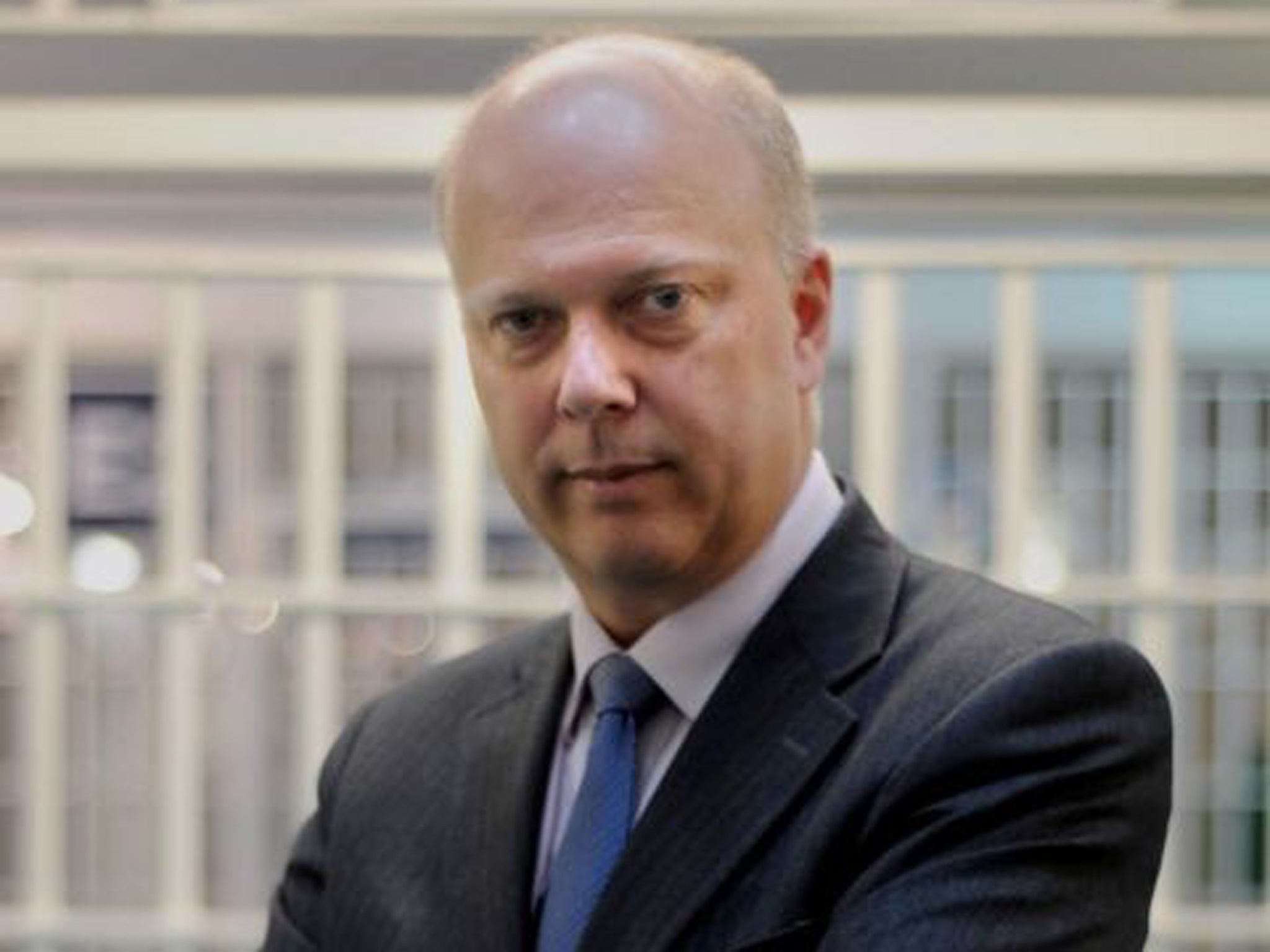Legal aid reforms could undermine fundamental principles of justice, warns CPS
The official prosecuting body fails to explicitly support any of the proposed changes

Your support helps us to tell the story
From reproductive rights to climate change to Big Tech, The Independent is on the ground when the story is developing. Whether it's investigating the financials of Elon Musk's pro-Trump PAC or producing our latest documentary, 'The A Word', which shines a light on the American women fighting for reproductive rights, we know how important it is to parse out the facts from the messaging.
At such a critical moment in US history, we need reporters on the ground. Your donation allows us to keep sending journalists to speak to both sides of the story.
The Independent is trusted by Americans across the entire political spectrum. And unlike many other quality news outlets, we choose not to lock Americans out of our reporting and analysis with paywalls. We believe quality journalism should be available to everyone, paid for by those who can afford it.
Your support makes all the difference.Government plans to reform legal aid for criminal suspects could undermine the fundamental principles of justice in England and Wales, the official prosecuting body has suggested.
In a surprising intervention, the Crown Prosecution Service said that proposals to limit legal aid and pay fixed fees to defence solicitors might not be “consistent with” the UK’s six fundamental of principles of justice. It also warned one of the proposals set out by the Justice Secretary, Chris Grayling, could conversely have the effect of pushing up costs.
As part of proposals to save £200m by 2018, the Government plans to stop paying solicitors for the legal aid work they do, instead giving them a fixed fee for each case they represent. Defence lawyers have warned this will make it in their financial interest to recommend guilty pleas to their clients – regardless of the facts of the case.
Under the plans, the number of accredited legal aid firms will drop from 1,600 to fewer than 400 - meaning that hundreds of small high-street firms could be replaced by huge contractors such as G4S. But Mr Grayling has already backed away from proposals to deny defendants on legal aid the right to choose their own solicitor.
It is believed he was influenced by strong criticism of his plan in a Commons debate last Thursday by Conservative MPs, who argued that the state choosing a defendant’s lawyer would be un-Tory.
He told MPs the idea was “only proposed in order to guarantee lawyers had enough business to make contracts viable”. He added: “It is clear the profession regards client choice as important and so I expect to make changes that allow a choice of solicitor in the future.”
In its response to the consultation, the CPS makes clear it has other concerns about the changes. Although its language is coded, its response fails to explicitly support any of the proposed changes and hints that in parts they could be detrimental to justice.
“The CPS acknowledges the difficult financial position currently faced by the Ministry of Justice,” it writes. “The CPS accepts that difficult decisions have to be taken if limited public funds are to be prioritised in a way which provides the greatest benefit to the wider community. But there must be a realistic expectation that any reforms arising out of this review will actually deliver those outcomes.”
It then lists what it considers to be the six fundamental principles underpinning a fair and effective criminal justice system and critiques the Government’s plans against them.
Among those is the retention of the self-employed criminal bar – which many believe will be threatened under the Government plans.
It writes: “The CPS expects to rely on the self-employed Bar in the future. Therefore, it is fundamentally important that a viable self-employed criminal Bar is maintained, albeit that it will need to adapt and modernise and may be smaller in size than it is now.”
It also criticises proposals to encourage early guilty pleas in the Crown Court – which it warns could actually push up overall legal aid costs.
“The CPS is concerned that the proposals for the early guilty plea fee in the Crown Court may create a perverse incentive for those cases which currently plead in magistrates’ courts to escalate to an early guilty plea in the Crown Court,” it writes.
“This would be a retrograde step and would reverse the recent trend of an increasing rate of defendants entering guilty pleas to either-way matters in magistrates’ courts.”
Overall it concludes: “The CPS acknowledges the difficult financial position facing the Ministry of Justice and that savings have to be made, however any reforms must be consistent with, or support and enhance, the six fundamental principles set out above, if they are to maintain the fair and efficient delivery of criminal justice.”
Whitehall sources suggested that this should be interpreted as expressing significant concern about the effect of the total package of reforms.
Justice Secretary Chris Grayling said: “I have been very clear this is a genuine consultation and we are listening to views. We are now carefully examining all the responses and expect a short period of further consultation on certain changes to the current proposals, for example how to add client choice. This won’t be a second consultation on every nut and bolt. We are not going back to the start, and we do need to bear down on legal aid costs.”
Join our commenting forum
Join thought-provoking conversations, follow other Independent readers and see their replies
Comments